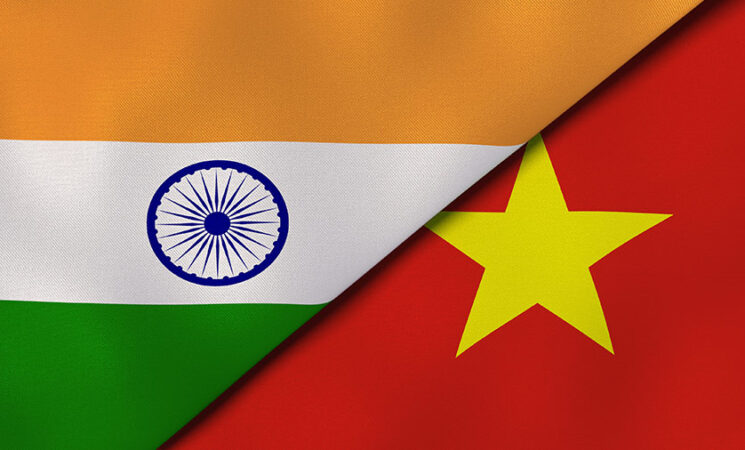25 July 2022, NIICE Commentary 8150
Bhawna
In the present geopolitical context, the issues of Security and Defense have occupied the central stage and are deemed to be one of the utmost areas of concern for many countries. India is one of them, which has constantly been attempting to make its presence felt in every domain possible at the global level. Moreover, one such area of navigation is its defense industry which has needed the long-delayed boost to foster defense manufacturing and maximize its overall defense exports. To accomplish its strategic vision, India has been uninterruptedly putting efforts into creating a level playing field for its defense sector and sailing through new opportunities at its doorstep. The Indian Defense Minister Rajnath Singh has been on a three-day visit to Vietnam starting on 8 June 2022, which has been seen as a breakthrough in the newly emerging strategic and defense relationship between India and Vietnam.
Traditionally, both the countries have shared a common culture in their historical account. However, in the present context, India and Vietnam deliberately attempt to venture out on new projects, primarily in security and defense, to advance their strategic engagement. In the recent visit by the Indian defense minister, the two countries inked the mutual logistics pact, which is the first-ever agreement Vietnam has signed with any country so far, enabling both sides to access each other’s military bases in their respective regions. This agreement has proved to be one step forward in strengthening their Strategic partnership. Nevertheless, during the visit, the most significant possibility was setting the seal on the Brahmos missile deal with Vietnam, which was on the top priority list. India and the Philippines both had secured a deal for the Brahmos missile worth 375 million dollars in January 2022, which has tempted other Southeast Asian countries like Vietnam and Indonesia to purchase the Brahmos missile system from India to maximize their security in their respective regions against China’s growing aggression.
Vietnam can emerge as a critical player among the Southeast Asian countries that could be deemed a trustworthy partner for India to establish peace and security in the region while countering China’s growing hegemonic ambitions. Also, this deal would have proved to be a gamer changer for the entire Indian defense manufacturing industry, like Defense Research and Development Organization (DRDO) which has developed the Brahmos missile system in collaboration with the Russian company NPOM. The Brahmos missile is the first indigenously designed long-range supersonic missile system that can be operated from land, sea, and air. Furthermore, such defense deals with other countries would unequivocally create symmetry for Indian domestic defense industries and expose them to global competition, further encouraging them to push forward their production capacity. Moreover, this agreement is equally significant from the peace and security perspective in the Indo-pacific region as well as the South China Sea, which has gathered substantial momentum due to China’s unilateral actions into the region over the past few years and has impacted the strategic interests of all the other neighboring countries substantially including India and Vietnam.
On the other hand, Maritime Security cooperation has been increasingly growing within the region, primarily among the Southeast Asian countries, to safeguard their respective interests and promote peaceful co-existence against Chinese aggression. India has constantly been trying to sell its Akash missile system, which is again an indigenously developed surface-to-air missile system, to Vietnam. At the same time, Vietnam has also been keenly observing the series of launches of the Akash missile; hence might be considered a potential buyer of the Indian-made missiles in the coming future.
Indeed, any such kind of Strategic engagement would create a win-win situation for both India and Vietnam in the longer run. By invigorating the more profound engagement with Vietnam or any other country, India would surely be able to realize its long-standing vision and achieve its twin objective of promoting its defense exports while reinforcing its strategic partnership with Vietnam. This partnership will benefit both of them, particularly against China in the present context. India needs to navigate through all the potential joint ventures cautiously in the domain of Strategic defense and engagement and should prefer what best serves its national interest.
Bhawna is Research Intern at NIICE.

